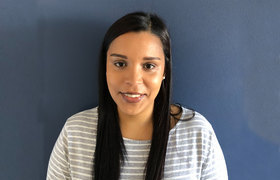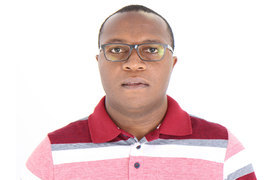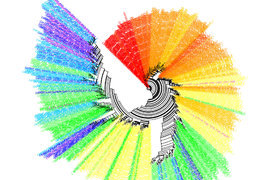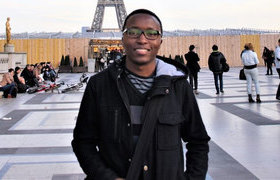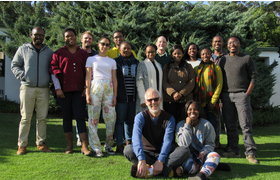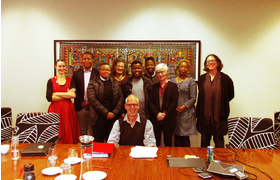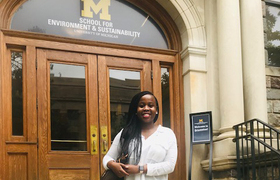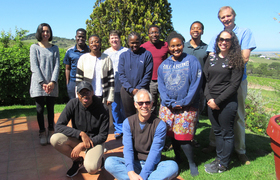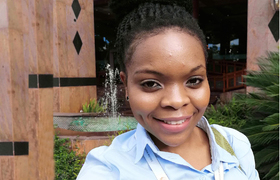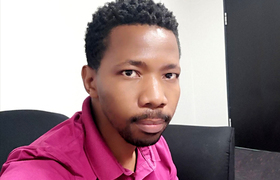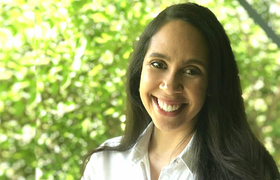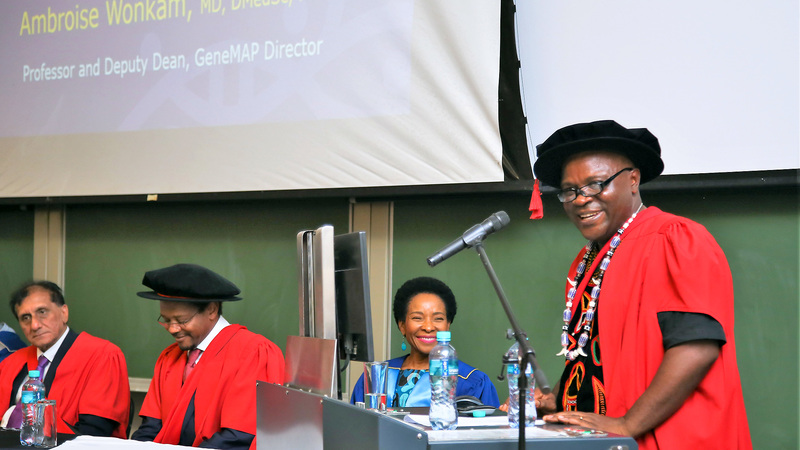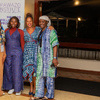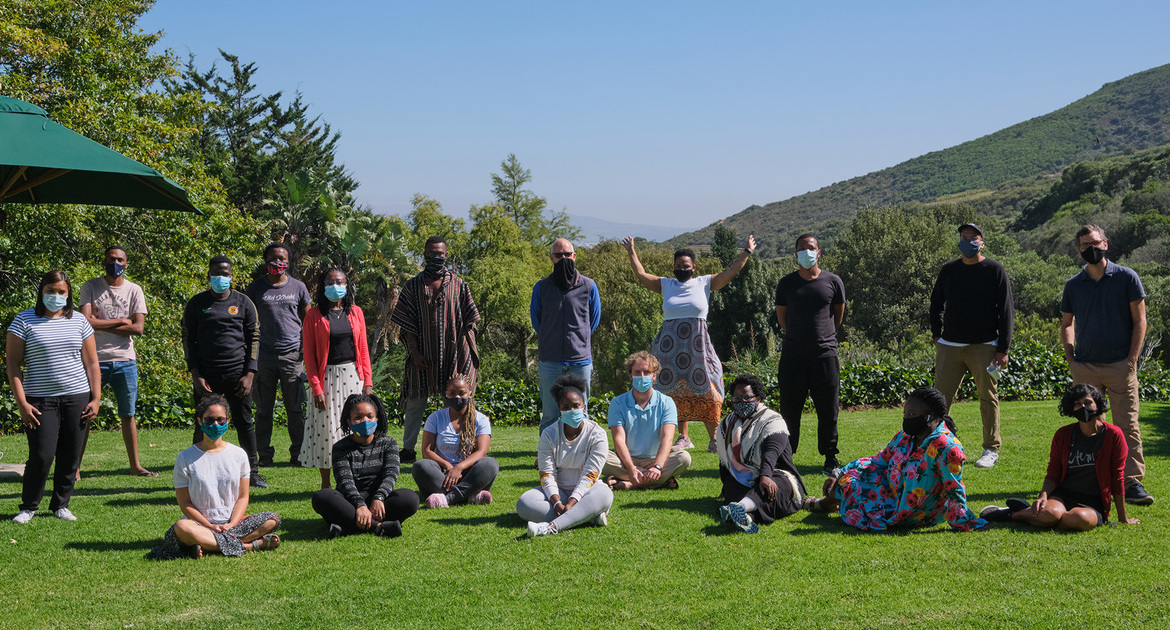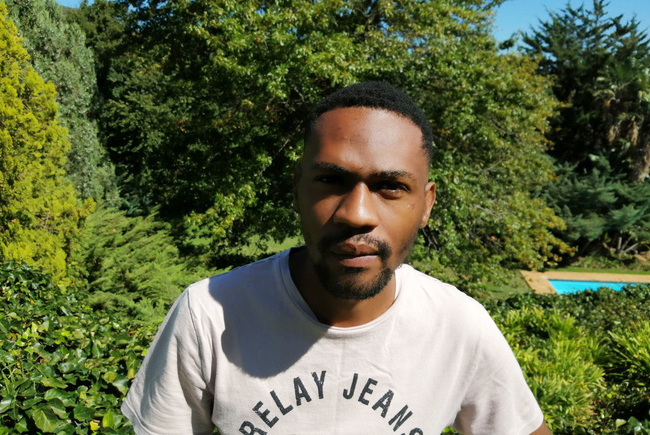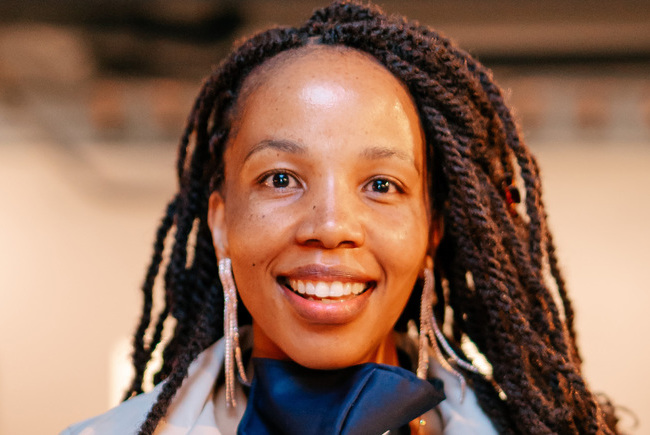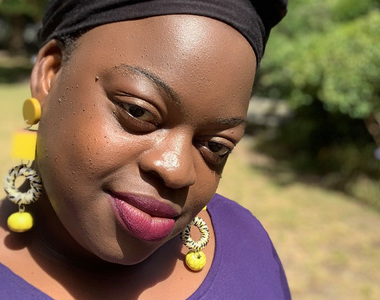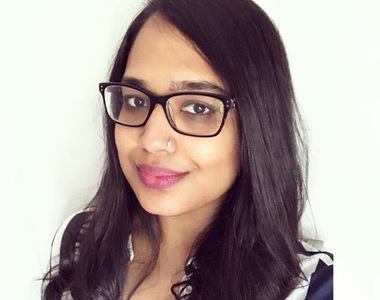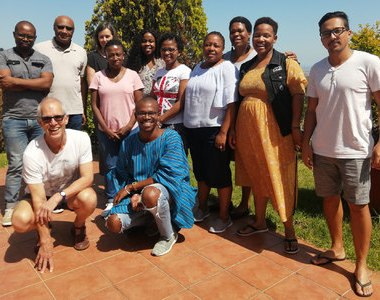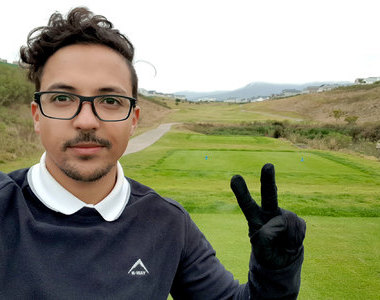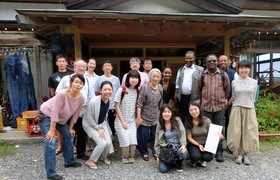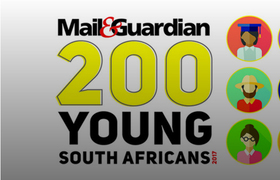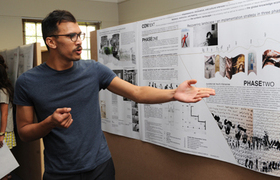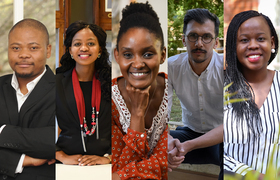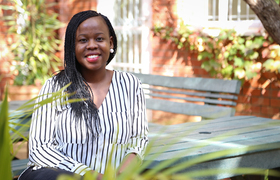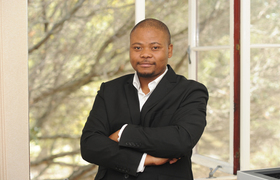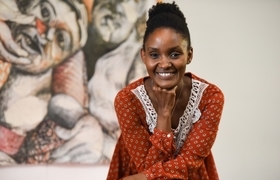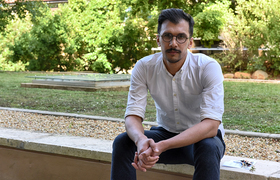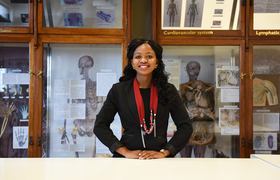Growing Africa’s genetic ‘library of life’
15 March 2019 | Story Niémah Davids. Photos Je’nine May. Read time 6 min.The untapped potential of DNA technology to significantly boost healthcare in Africa, including the acceleration of diagnosis and treatment of threats like HIV and tuberculosis, substantiates the urgent need for focused investment in genomics.
That was the appeal from Professor Ambroise Wonkam, director of the University of Cape Town’s (UCT) Genetic Medicine of African Populations (GeneMAP) research centre, when he delivered the first Vice-Chancellor’s Inaugural Lecture for 2019 this week.
Addressing the topic “Enabling genetic medicine”, Wonkham, who is also the deputy dean of research in the Faculty of Health Sciences, pointed to the fact that while Africa accounts for 15% of the world’s population, the comparative figure for global research and development investment is just 1.3%.
“Today I need to convince you that we need to invest in genetics to improve medicine and especially medicine in Africa,” Wonkam said.
He named lack of investment in innovation, and a dearth of knowledge and expertise among medical professionals, as two of the biggest challenges in the field. While the number of scientists participating in genomics research around the world continues to grow, he said, there is little evidence of its impact in practice, especially in Africa.
“Today I need to convince you that we need to invest in genetics to improve medicine and especially medicine in Africa.”
“The knowledge of genetics is limited on the continent, even among medical professionals.”
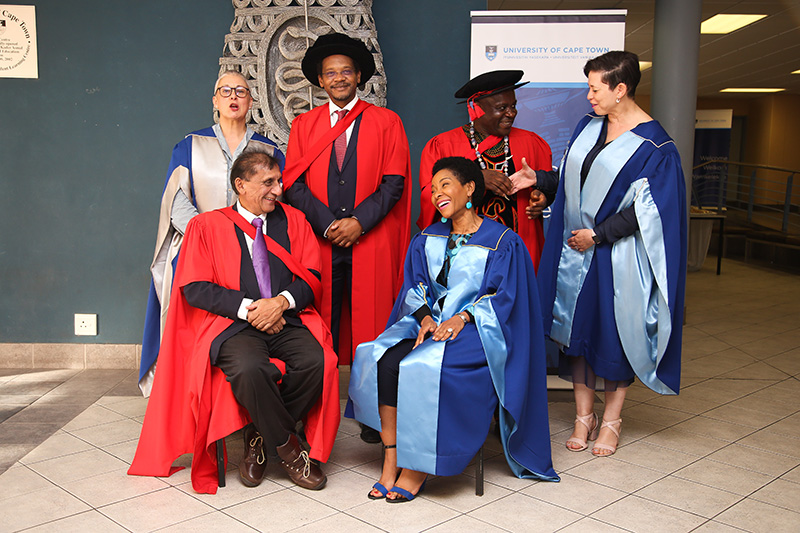
Defining medical genetics
Medical genetics, put simply, refers to a branch of medicine that involves the diagnosis and management of hereditary diseases. It also refers to the application of genetics to medical care.
Wonkham described the human genome as a “library of life” with 46 “shelves”, which geneticists call chromosomes. These chromosomes include “20 000 books”, or genes.
While human beings are 99.9% similar genetically, despite different facial features and dialects, there are other factors to be considered.
“What is so specific in [an] individual with blood clot disorder, or [a] man with hypercholesterolaemia, or [a child] with albinism? What they all have in common is genetic variations – all of them. They have one change in their library, and that is what makes them different,” he said.
Addressing the benefits of improved genome research, Wonkam listed improved diagnosis of disease, the detection of genetic disease predispositions, and the design of efficient drugs for genetic diseases.
Importantly, it also rapidly detects viruses such as HIV, human papillomavirus, TB and malaria, and helps accelerate consequent treatment following diagnosis.
“But we are not investing much in [this] research,” he said.
Studying genetic disease
One of Wonkam’s primary research areas is sickle cell disease (SCD) – the most common genetic disease. It affects the body’s haemoglobin, the molecule in red blood cells that delivers oxygen to cells throughout the body. SCD causes the red blood cells to change from a round shape to a banana shape, causing them to stick to blood vessels.
He said that SCD, which kills more than 300 000 newborn babies in Africa every year, causes kidney failure, strokes and heart attacks. This high death toll is in spite of his research findings that show there are several levels of prevention and care that should be implemented for SCD.
“We believe that in the next 10 years we should have more African scholars, based on the African continent, studying genetics, who will produce enough data relevant to the continent.”
At primary prevention level, this includes prenatal diagnosis, and at secondary prevention level, guidance with genetic modifiers. At tertiary level, treatment therapy such as stem cell and bone marrow transplants, as well as gene therapy, should be available.
“Our hope is that in the future, if we have a child born with SCD, by looking at all the variations in the many genes, we may be able to predict that this child will have a stroke and we will [be able to] start blood transfusion immediately,” Wonkham explained.
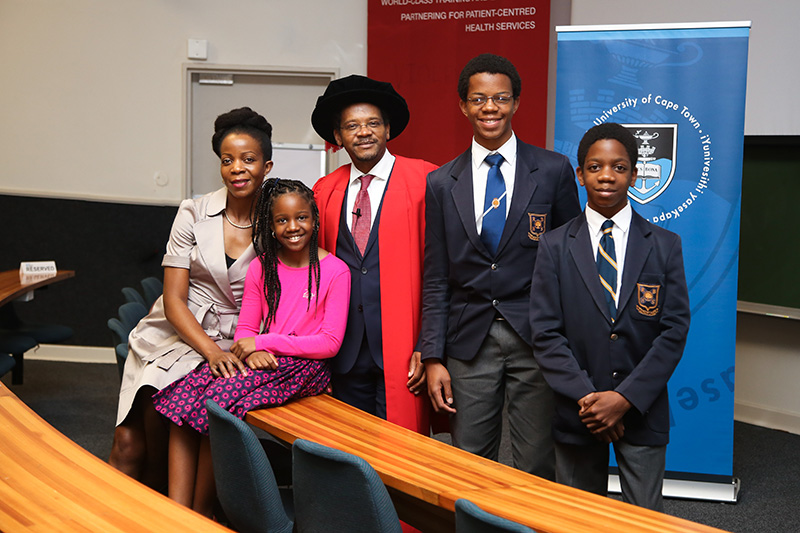
Stressing the importance of genetic technology, he said it should be a priority for all nations.
“We believe that in the next 10 years we should have more African scholars, based on the African continent, studying genetics, who will produce enough data relevant to the continent.
“We can get there if we work hard, and the international community will trust us. My hope and expectation is that Africa will, in time, be visible on this map.”
UCT Vice-Chancellor Professor Mamokgethi Phakeng said Wonkham has dedicated his life to understanding human genetics for the betterment of the public healthcare sector.
The purpose of the inaugural lectures, she explained, is to provide those who have achieved the highest academic rank with a platform to share their research, and the way in which it benefits the country, continent and the world at large.
“Professor Wonkam is the perfect example of how we, at the tip of the African continent, are creating and sharing knowledge with the rest of the world.”
 This work is licensed under a Creative Commons Attribution-NoDerivatives 4.0 International License.
This work is licensed under a Creative Commons Attribution-NoDerivatives 4.0 International License.
Please view the republishing articles page for more information.
New Generation of Academics Programme (nGAP)
UCT has responded energetically to the New Generation of Academics Programme (nGAP), an opportunity provided by the Department of Higher Education (DHET) to build a new generation of black South African academics. The DHET’s 2015 vision document, “Staffing South Africa’s Universities Framework: A comprehensive, transformative approach to developing future generations of academics and building staff capacity”, proposes a suite of initiatives to address the challenge, with nGAP being the major instrument to increase the numbers of black South African academics.
The programme “involves the recruitment of highly capable scholars as new academics, against carefully designed and balanced equity considerations and in light of the disciplinary areas of greatest need”. The nGAP scholars are appointed into permanent positions where from the outset their conditions are customised to ensure their successful induction into the ranks of established academics.
The DHET provides funding over a six-year period to support the appointment of an nGAP lecturer, and their time is protected to provide the best possible opportunity for the completion of a doctorate degree in the shortest possible time. Once the degree is completed, the nGAP lecturer’s teaching commitments are steadily increased until they shoulder a full teaching load.
Since the first advertisement for nGAP posts in 2015, UCT has been awarded 17 nGAP positions: 5 (Phase 1), 4 (Phase 2), 3 (Phase 3) and 5 (Phase 4). These are distributed across all faculties.
UCT’s nGAP scholars operate as a single cohort, managed and coordinated by Dr Robert Morrell. Lecturers meet for quarterly meetings, writing retreats and various capacity-building activities all designed to support the completion of postgraduate qualifications (particularly doctorates) and to develop records of achievement that will testify to their emergence as self-standing, excellent academics. Each lecturer is mentored by a senior scholar, who provides support and guidance on the challenges that routinely face academics.
The nGAP manager sets great store in building the cohesion of the cohort and encouraging the establishment of new UCT networks while producing a collaborative, mutually supportive and embracing work culture.
According to Dr Morrell, “This group of academics will lead UCT in 15 to 20 years’ time ... Their vision of excellence, of being African and South African, of serving a wider community and producing knowledge for the planet, the continent and the country, will power UCT in years to come.”
Newsletters
In the news
